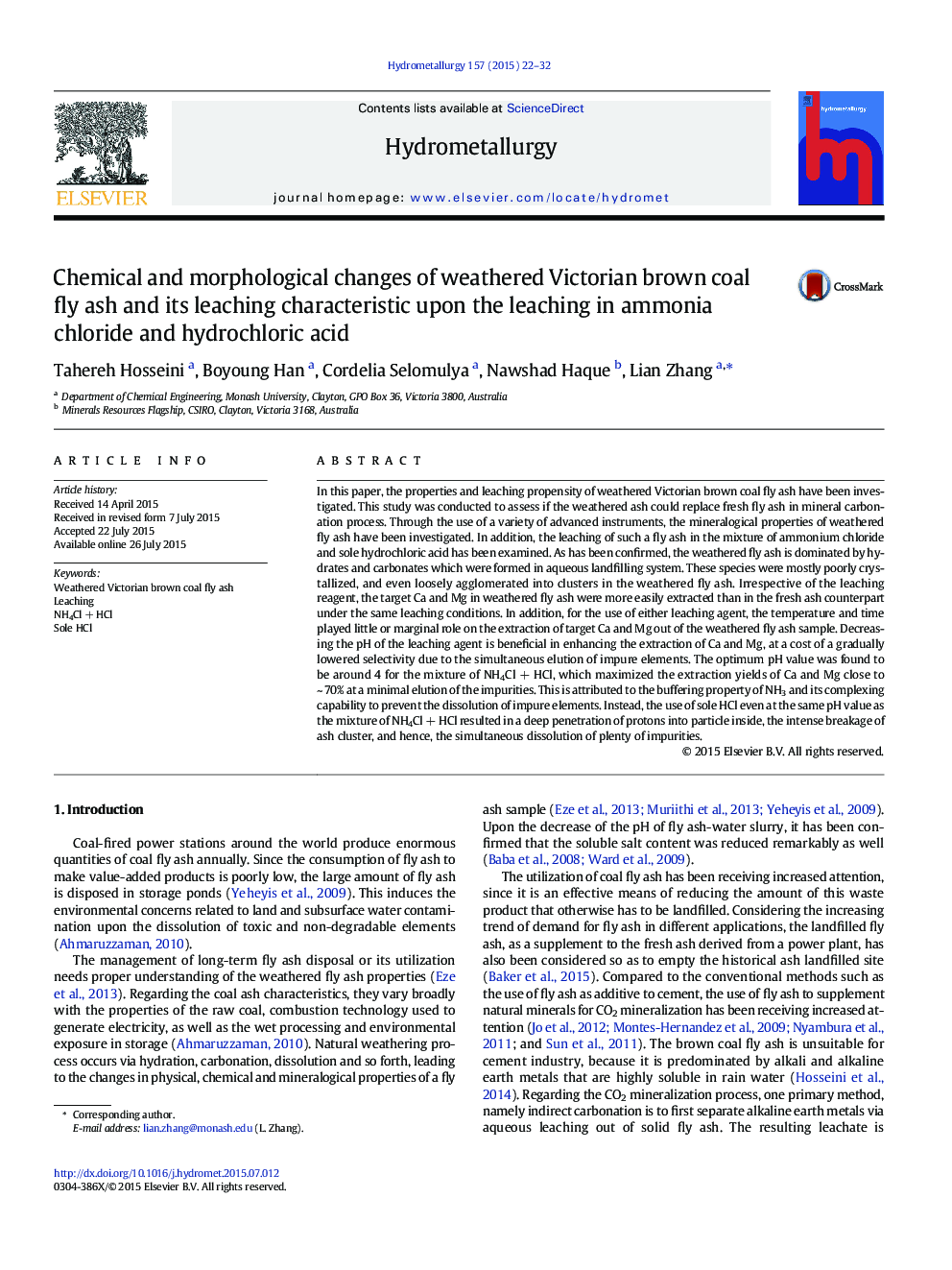| Article ID | Journal | Published Year | Pages | File Type |
|---|---|---|---|---|
| 6659251 | Hydrometallurgy | 2015 | 11 Pages |
Abstract
In this paper, the properties and leaching propensity of weathered Victorian brown coal fly ash have been investigated. This study was conducted to assess if the weathered ash could replace fresh fly ash in mineral carbonation process. Through the use of a variety of advanced instruments, the mineralogical properties of weathered fly ash have been investigated. In addition, the leaching of such a fly ash in the mixture of ammonium chloride and sole hydrochloric acid has been examined. As has been confirmed, the weathered fly ash is dominated by hydrates and carbonates which were formed in aqueous landfilling system. These species were mostly poorly crystallized, and even loosely agglomerated into clusters in the weathered fly ash. Irrespective of the leaching reagent, the target Ca and Mg in weathered fly ash were more easily extracted than in the fresh ash counterpart under the same leaching conditions. In addition, for the use of either leaching agent, the temperature and time played little or marginal role on the extraction of target Ca and Mg out of the weathered fly ash sample. Decreasing the pH of the leaching agent is beneficial in enhancing the extraction of Ca and Mg, at a cost of a gradually lowered selectivity due to the simultaneous elution of impure elements. The optimum pH value was found to be around 4 for the mixture of NH4Cl + HCl, which maximized the extraction yields of Ca and Mg close to ~ 70% at a minimal elution of the impurities. This is attributed to the buffering property of NH3 and its complexing capability to prevent the dissolution of impure elements. Instead, the use of sole HCl even at the same pH value as the mixture of NH4Cl + HCl resulted in a deep penetration of protons into particle inside, the intense breakage of ash cluster, and hence, the simultaneous dissolution of plenty of impurities.
Keywords
Related Topics
Physical Sciences and Engineering
Chemical Engineering
Chemical Engineering (General)
Authors
Tahereh Hosseini, Boyoung Han, Cordelia Selomulya, Nawshad Haque, Lian Zhang,
